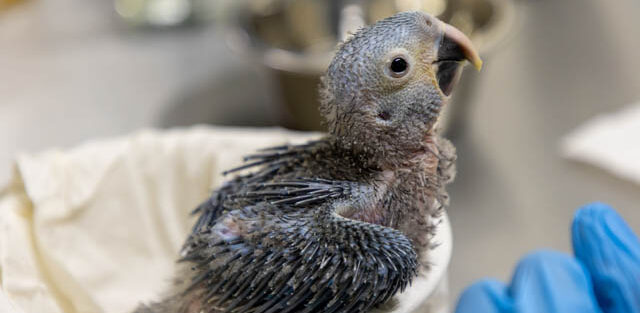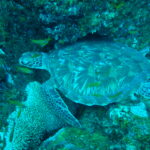A Spix’s macaw chick has hatched at the Pairi Daiza Zoo in Belgium, marking the first successful birth of this species after 100 previous eggs did not result in fertilisation. The Spix’s macaw is considered extinct in the wild, with no known living individuals outside of captivity.
Johan Vreys of Pairi Daiza described the moment as “Emotional and unforgettable. After years of dedication and 100 unsuccessful eggs, seeing the 101st finally hatch felt like witnessing a true miracle of life. The entire team was overwhelmed with joy, relief, and gratitude — a sense that all the patience, expertise, and long nights had finally paid off.”
The chick hatched on September 21. Due to the inexperience of its parents, it was transferred to a specialised incubator for careful artificial incubation. Johan explained, “For the first ten days, the egg remained with its parents. However, Spix’s macaws under human care tend to lose their natural brooding instinct, which means they may not incubate their eggs properly. To give this fragile embryo the best possible chance, the team decided to transfer the egg to a specialised incubator — a carefully controlled machine that creates and adjusts the ideal warmth and humidity conditions for the incubation.”
Following hatching, the chick is being hand-fed by the zoo team every two hours. At four weeks old, it weighs 280 grams and is developing its first soft blue feathers. “Each feeding is carefully measured and monitored to ensure the chick’s growth and strength increase day by day,” Johan said.
The Spix’s macaw has become a global symbol of conservation. Johan noted, “Its extinction in the wild showed how fragile biodiversity can be — and its gradual return represents what is possible when international collaboration, science, and compassion unite to save a species.”
The chick will remain part of the breeding programme and is expected to play a crucial role as a future breeder. While it will not be reintroduced into the wild immediately, its birth strengthens the species’ captive population and supports efforts toward eventual reintroduction in Brazil. “Holding this tiny life in our hands feels like holding the future. It’s a moment of pride, humility, and renewed motivation for everyone involved,” Johan said.


